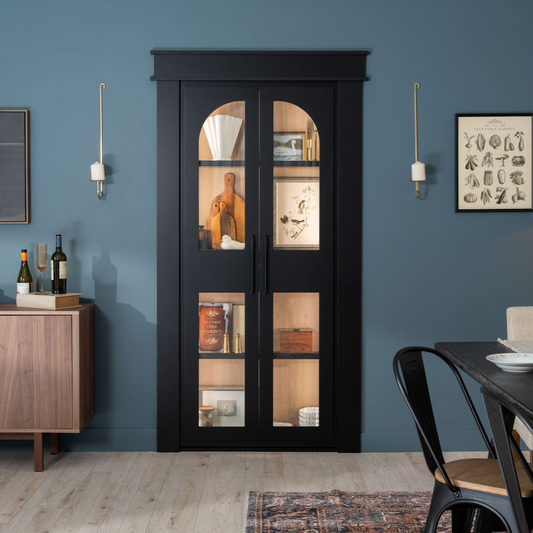Pantry and Canning Storage by Murphy Door
Canning your own food has lots of advantages. Not only is it fresher and healthier, but carefully preserved foods will also last longer than canned goods purchased from the grocery store. Accordingly, preppers can ensure they always have an adequate food supply on hand. Maybe you’re considering canning, preserving, or fermenting food, too, and you’re trying to learn new techniques. Before breaking out the canner, you'll need to decide where to store everything. Here are a few pantry storage considerations to keep in mind.
Light and Temperature Requirements
The National Center for Home Food Preservation (NCHFP) advises people to store canned goods in a "clean, cool, dark, dry place." They recommend storing containers at temperatures between 50 and 70 degrees Fahrenheit. They also strongly caution against leaving jars in locations where the temperature may reach more than 95 degrees Fahrenheit.
Why are these temperature and light requirements important? According to the NCHFP, high temperatures may cause food to spoil. And when glass jars are exposed to sunlight, the foods inside them can lose their nutritional value. This means that, suddenly, your hard work could have all been for nothing.
When choosing a storage location, make sure there are no heating vents or drafty spaces that might cause fluctuations in temperature. Instead, select a spot that is well insulated and has good temperature control. Pantry storage is an excellent option, especially if you have the space.
Cleanliness and Pest Control
A food storage area should naturally be very clean. The layout should allow you to wipe down the shelves, eliminate cobwebs, and mop the floors on a regular basis.
Cleanliness and pest control go hand in hand. Whenever you are storing food, you must also be mindful of pests such as roaches and vermin. So your space should contain as few cracks or other openings as possible. For added protection, ensure your bottom shelf is at least six inches off of the ground. This will make it harder for mice to access your canned goods.
Airflow and Moisture
Food will last longer when your storage area also allows for good airflow. The right amount of airflow will prevent excess moisture from building up. If your pantry has too much moisture, you might notice mold or mildew forming on your lids. At that point, your canned foods are no longer safe to eat.
Avoid storage areas with drains or pipes. In doing so, you can also prevent damage caused by leaks or flooding.
Easy Access
Having lots of freshly-preserved foods on hand will not do you much good if you cannot get to them. As such, your storage space should also be easy to access. It should be simple for you to get in, find what you are looking for, and then get out.
Your shelves should also make it easy to rotate stock. That way, each time you can a new batch, you can quickly make room by sliding your older jars to the front.
Storage Location Ideas
Previous generations often stored their canned goods inside a cellar. While a cellar does allow for temperature control, it does not safeguard against moisture or insect damage. Having items stored in a cellar is also inconvenient and makes it difficult to keep things clean.
A better solution would be to convert an existing pantry or closet. One of our Murphy doors will provide you with additional pantry storage while also making your space very easy to access. Add up to 20 cubic feet of storage space into your existing doorway with a single Murphy door. Then you will still have plenty of room for spices, canisters, and other kitchen items.
Don't wait until you have dozens of jars prepared and no pantry storage available! Contact us today to learn more about the benefits of our Murphy doors.



